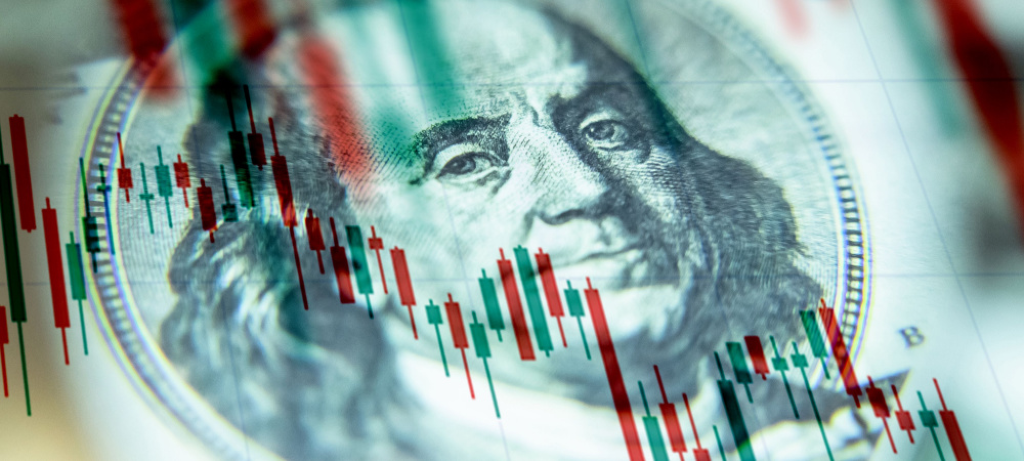U.S. Households Wealth Declines

- A new recent report released by the Federal Reserve looked at the wealth of households and highlighted key financial data regarding where money is rising and falling.
- Total household net worth dropped by $500 billion to $149.3 trillion, but the amount of money in savings deposits rose to $11.28 trillion.
- With more money being put into savings accounts, an assumption can be made that people are worried about a possible recession in the near future.
The U.S. household wealth declined in the first quarter of 2020 at the onsight of the COVID-19 pandemic. However, since then, wealth has been on the increase. That is, until recently. A new report released by the Federal Reserve looked at the wealth of U.S. households and highlighted critical financial data regarding where money is rising and, more alarming, falling.
Federal Reserve Report on U.S. Households
A report released by the Federal Reserve determined that the U.S. household net worth decreased by $500 billion to now total $149.3 trillion. For reference, net worth is defined as the difference between the assets and liabilities of a household or individual. Therefore, the decline in household net worth indicated that the assets of households dropped, mainly due to the $3 trillion fall in the value of stocks.
Conversely, although the stock market has experienced a drop in value in the second quarter (Q2) of 2022, real estate values climbed by an additional $1.7 trillion. The main factor behind the rising housing market is because of housing demand.

Since many homes are in the process of being built, there is a fixed short-term amount of houses currently on the market. Thus, with fewer houses up for sale and the high demand for housing, the value of the real estate market has risen significantly.
The median rent price in America is expected to rise over $2,000 per month by the end of summer 2022. Since rent prices are increasing, some people believe that if they purchase a house, despite the higher than normal interest rates, they can build equity over time instead of paying tens of thousands of dollars to their landlords each year.
The Federal Reserve report showed household balance sheets remained somewhat stable, as the total value was higher by $32.5 trillion compared to pre-pandemic levels. The higher values show that although there is a decline in household wealth, it is still higher than before the start of the pandemic.
Consequently, this higher than before level of wealth is speculated to continue to support strength in consumer spending. Therefore, although there is high inflation because household wealth has risen significantly, most people can and will spend more.
Furthermore, checkable deposits and currency are rising by about $210 billion to $4.47 trillion, and time and savings deposits were up by around $90 billion to $11.28 trillion. Therefore, as bank account balances rose, one can speculate that more money is being put into bank accounts instead of the stock market could be due to another possible recession.
What Caused the U.S. Household Wealth to Decline - Then and Now
The second-most recent time household wealth declined was in the first quarter of 2020, and it was due to the COVID-19 pandemic. Once the pandemic hit, there were times of uncertainty and fear as people did not know how long the virus would be around and impact daily life.
When there are times of economic uncertainty, some people begin selling their equities in exchange for cash in their bank account to have a financial safety net in case something goes wrong. Consequently, the nervousness and anxiety created by COVID-19 led to many people liquidating their assets, and the stock market significantly declined in value, meaning those who still held their investments saw a plummet in their portfolio value and household wealth, by extension.

A similar sequence of events is now taking place. The stock market has been performing poorly, and many companies and investors have begun seeing a drop in market value over the past couple of weeks. In addition, the stock market has started declining in value due to the Fed raising interest rates.
As the COVID-19 pandemic resulted in many being out of work, the government implemented relief measures to help stimulate the economy and prevent a crash. Unfortunately, those packages caused high levels of inflation, as the money injected into the economy resulted in the value of the United States Dollar (USD) to lower in significance and value.
Therefore, to help reduce spending and inflation, the Central Bank raised interest rates. The Central Bank hopes this action plan will help resolve some significant economic issues and hopefully prevent a recession.
The Money Wrap-Up
In times of economic uncertainty, one of the best techniques to help people get through the tough financial hurdle is having an emergency funds account. This emergency fund will cover three to six months' worth of living expenses and will be used when your regular income cannot cover living expenses.
It is better to be over-prepared than under-prepared. Therefore, by putting money aside in an emergency fund, you can prepare yourself financially for any obstacle that comes your way and prevent a financial setback.